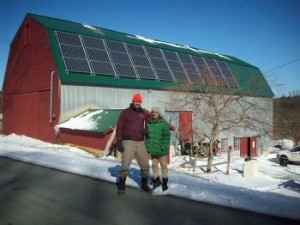Despite what those in the natural gas industry claim, the construction of a natural gas pipeline across Massachusetts would kill jobs here in our own state. One of Massachusetts’ fastest growing industries is the clean energy industry, which includes renewable energy and energy efficiency.
In Massachusetts, at the end of 2014, clean energy employed 88,372 people according to a report by the Massachusetts Clean Energy Center. This is as many people as are working in the insurance industry here; an industry universally recognized as one of our leading industries. The clean energy industry employs 2.4% of all of our workers. There are 5,985 clean energy businesses in our state. Clean energy jobs account for 2.5% of the Massachusetts gross state product (GSP). And these numbers are growing fast. The number of jobs in the industry grew by 10.5% from 2013 to 2014. This was the third year in a row of double-digit growth, resulting in a 47% increase over the past 4 years. Projections are for the clean energy industry to add another 11,700 jobs in 2015, for a 13.3% annual growth rate.
This is the industry whose growth would be displaced by a pipeline that would carry up to 2.2 billion cubic feet per day of natural gas. How many jobs would construction of the pipeline produce? According to the pipeline company (Kinder Morgan), construction of the pipeline would produce about 3,000 temporary jobs, and not all of those jobs would go to Massachusetts residents. Compare this to the more than 100,000 full-time Massachusetts people who would be working in the clean energy sector.
Berkshire Environmental Action Team has since February of 2014 been making the case that there is no need for this pipeline. The clean energy industry, on the other hand, has been responsible for Massachusetts dramatically increasing the percentage of its electricity that comes from renewable energy. This share went from 6% in 2011 to 9.3% in 2013. This growth rate is increasing and will continue to increase in the future. At the same time, through increases in energy efficiency, the clean energy industry has brought statewide electricity demand increases to zero. We do not have increasing electric energy demand in Massachusetts. Flat demand and increases in renewable energy have resulted in a 4% decline in statewide generation from fossil fuels between 2011 and 2013. Again, the fast-growing clean energy industry is the industry that would be threatened by bringing in 2.2 billion cubic feet of natural gas per day through the proposed pipeline, construction of which would produce a few temporary jobs in order to bring in unneeded fossil fuel.

